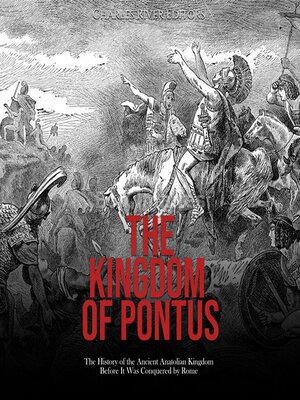The Kingdom of Pontus
audiobook (Unabridged) ∣ The History of the Ancient Anatolian Kingdom Before It Was Conquered by Rome
By Charles River Editors

Sign up to save your library
With an OverDrive account, you can save your favorite libraries for at-a-glance information about availability. Find out more about OverDrive accounts.
Find this title in Libby, the library reading app by OverDrive.



Search for a digital library with this title
Title found at these libraries:
| Library Name | Distance |
|---|---|
| Loading... |
Rome faced many formidable enemies over the course of nearly 1,000 years, but perhaps none were as enigmatic and forgotten as King Mithridates VI of Pontus. Despite numerous ancient sources detailing the life of the foreign monarch and his wars with Rome, and despite being an interesting character who endured years as a fugitive in his youth, enjoyed a fascination with poisons, and held mercy and pragmatic ruthlessness in a delicate balance, very few scholarly books and works have been produced about the king. It may be that his largely unsuccessful military campaigns have contributed to his disappearance from active historical examination, but despite his poor record in engagements against the Romans, the Kingdom of Pontus dominated much of Asia Minor in the 1st century BCE, and the Romans themselves considered the kingdom one of its most dangerous enemies. According to Plutarch, when Mithridates died, the Roman soldiers felt that "in the person of Mithridates ten thousand enemies had died." By then, it had required three of Rome's most famous generals - Sulla, Lucullus, and Pompey - to finally subdue his kingdom.
The early Pontic kings found themselves in the midst of the Diadochi Wars, quickly learning that the survival of their kingdom depended upon which Macedonian general to support and which ones to oppose. For the most part, the kings chose wisely and were able to not only stay independent but also to expand their kingdom's borders. Somewhat fittingly, as the Pontic kings battled their neighbors for control of the Black Sea basin, they promoted a culture that grafted Greek, Persian, and local Anatolian traditions into a unique identity.
The Kingdom of Pontus' power and prestige grew until it caught the attention of the Romans, whose upward trajectory coincided with Pontus' in many ways.







